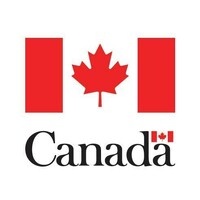
Open
EcoAction — Stream 1
Last Update: October 27, 2025
Canada
Improves freshwater quality through community-led environmental projects
Grant and Funding
At a glance
Funding available
Financing goals
Increasing community impact
Develop strategic partnerships
Reduce the ecological footprint
See more
Eligible Funding
- Maximum amount : 100,000 $
- Minimum amount : 25,000 $
- Up to 50% of project cost
Timeline
- Unspecified
Eligible candidates
Eligible Industries
- Administrative and support, waste management and remediation services
- Educational services
Location
- Canada
Legal structures
- Non-profit
- Public or Parapublic institution
Annual revenue
- All revenue ranges
Organisation size
- All organization sizes
Audience
- All groups
Non-profit candidates
Sector of operation
- Environment
- Economic, Social and Community Development
- Children and Youth Organizations
- Diversity and Inclusion
Target groups
- General public
- Children & youth
- Young adults
- Seniors
- Indigenous peoples
- Business owners / entrepreneurs
Revenue structures
- All structures
Scope
- Local
- Regional
- National
Overview
The EcoAction Stream 1 grant provides up to $100,000 in funding to support community-led projects across Canada aimed at improving freshwater quality and ecosystem health. Eligible activities include shoreline protection, invasive species control, indigenous plant restoration, and environmental education workshops.
Activities funded
- Protection, stabilization, or enhancement of shorelines.
- Cleaning, removal, and/or redirection of waste.
- Control and/or eradication of invasive species.
- Plantation of native plant species.
- Habitat and/or land restoration.
- Workshops and/or awareness activities directly associated with community action.
- Implementation of freshwater recommendations from environmental management plans.
- Water conservation efforts.
Examples of admissible projects:
$ 48,000
Creating a digital archive for Indigenous heritage preservation
$ 28,000
Establishing a new arts education program for underserved youth
$ 50,000
Installing solar panels on low-income housing
$ 55,000
Launching a green technology incubator for startup companies
$ 32,000
Implementing a solar energy system in a local school
$ 45,000
Developing community kitchen to support local food security
$ 45,000
Launching a mental health support app for young adults
Eligibility
- The applicant must be a national non-profit organization, such as charities or voluntary organizations, professional associations, and non-governmental organizations, or national Indigenous organizations, governments, boards, commissions, communities, associations, and authorities.
- Local organizations such as associations, community groups, seniors and youth groups, and charitable societies are eligible.
- Regional conservation authorities and districts are eligible.
- Preference is given to applications involving priority groups like Indigenous peoples, youth (up to 25 years old), and small businesses to achieve project objectives.
Who is eligible?
- National non-profit organizations, such as charities or volunteer organizations, professional associations, and non-governmental organizations
- National Indigenous organizations, governments, councils, commissions, communities, associations, and authorities
- Local organizations, such as associations, community groups, senior and youth groups, and charitable societies
- Regional conservation authorities and districts
- Priority given to projects involving Indigenous peoples, youth (up to 25 years), and small businesses
Eligible expenses
- Personnel resources, including salaries and benefits.
- Services of contractors required to conduct project-related activities.
- Management and professional services such as accounting, monitoring, communications, translation in official languages, auditing, and legal fees.
- Costs of accommodation, travel, events, or conferences, following the Treasury Board Secretariat's directive on travel, hospitality, conference, and event expenditures.
- Indigenous ceremonial offerings used or consumed during meetings or ceremonies.
- Costs associated with Indigenous ceremonies or participation.
- Monetary fees for Indigenous elders or knowledge keepers participating in specific activities, such as translation and interpretation, leading traditional ceremonies, knowledge exchange, or traditional art demonstrations.
- Equipment and supply costs.
- Costs of printing, production, and distribution.
- Purchase or rental of equipment.
- Rental and operational costs of vehicles.
- Non-reimbursable GST/HST by the Canada Revenue Agency and non-reimbursable provincial sales tax.
- A reasonable share (15% or less) of overhead or administrative fees directly arising from the project's execution.
Selection criteria
- Administrative Review: Examination to confirm eligibility, projects deemed ineligible will be notified by the end of this step.
- Technical Review: Assessment by subject matter experts to confirm the scientific and technical feasibility of your project.
- Regional Review: Regional staff reviews projects based on the following elements:Project's connection to freshwater.
- Evidence of strong community involvement and knowledge transfer components.
- Feasibility of the project in terms of impacts, budget, outcomes, and activities.
- Continuation of the project's activities and benefits.
- Engagement of priority groups and establishment of partnerships with these groups.
How to apply
1
Access Online SystemUse the Grants and Contributions Enterprise Management System (GCEMS) to start your application.
If needed, contact sgesc-gcems@ec.gc.ca for technical assistance with GCEMS.
2
Complete the Application FormDraft a comprehensive project proposal including project objectives, community involvement, and the educational component.
- Identify all necessary permits or authorizations and include them in your plan if not yet obtained.
- Fill out the budget section detailing all sources of funding and contributions.
3
Review and SubmitMake sure your application aligns with freshwater priorities and includes measurable objectives and indicators.
Submit your application at least 24 hours before the deadline to address any potential errors.
4
ConfirmationOnce submitted, expect to receive a confirmation letter if your project is being considered.
Prepare for additional communications to finalize a contribution agreement if selected.
Additional information
- All applicants will be notified in writing whether their application is successful or not. For approved applications, a contribution agreement outlining the funding terms will be negotiated.
- Members of Parliament and/or their staff may be informed about approved projects, including project details and funding amounts.
- Funding is contingent upon the successful negotiation of a contribution agreement between the applicant and Environment and Climate Change Canada (ECCC).
- The contribution agreement must include written confirmation of all funding sources, a summary of the project description, implementation details, progress evaluation, expected results, and budgetary forecasts.
- Approved applicants are required to submit regular reports to ECCC throughout the project duration, aligned with the contribution agreement terms.
- A final report is required upon project completion, with the final payment withheld (minimum 10%) until the final report is submitted, reviewed, and approved by ECCC.
Contacts
EcoActionNational@cwa-aec.gc.ca
Canada
Apply to this program
Frequently Asked Questions about the EcoAction — Stream 1 Program
Here are answers to the most common questions about the EcoAction — Stream 1. This section explains what the program is, how much funding is available, eligibility requirements, application deadlines, and other important details to help you determine if this grant is right for your business.
What is the EcoAction — Stream 1?
How much funding can be received?
Who is eligible for the EcoAction — Stream 1 program?
What expenses are eligible under EcoAction — Stream 1?
Who can I contact for more information about the EcoAction — Stream 1?
Where is the EcoAction — Stream 1 available?
Is the EcoAction — Stream 1 a grant, loan, or tax credit?
Apply to this program
More programs like this

Grant and FundingClosed
Industrial Research Assistance Program (IRAP) – AI Assist
National Research Council Canada (NRC)Supports Canadian SMEs in adopting and integrating advanced AI solutions

Researchers And FacilitiesPartnering and CollaborationWage Subsidies And InternsOpen
Mitacs Accelerate
MitacsConnect organizations with academia for research and innovation collaboration

Grant and FundingClosed
ISED — Artificial intelligence (AI)
Innovation, Science and Economic Development Canada (ISED)Supports testing innovative AI prototypes for Canadian government needs
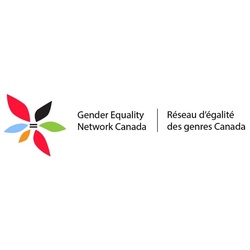
Partnering and CollaborationGrant and Fundingarchived
Equality for Sex, Sexual Orientation, Gender Identity and Expression Program
Women and Gender Equality Canada (WAGE)Supports equality initiatives for sex, sexual orientation, and gender identity
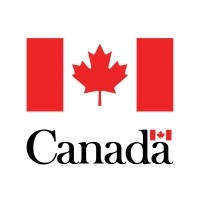
Grant and FundingClosed
Crime Prevention Action Fund (CPAF)
Public Safety Canada (PSC)Supports evidence-based crime prevention initiatives for at-risk communities
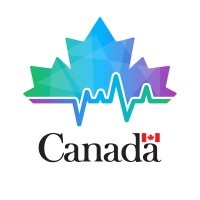
Grant and FundingClosed
Substance Use and Addictions Program (SUAP)
Health CanadaSupports innovative projects addressing substance use prevention and treatment
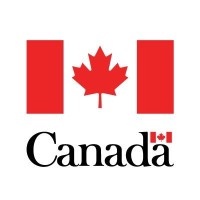
Grant and FundingClosed
Rail Safety Improvement Program (RSIP) - Research and Education Component
Transport Canada (TC)Funding for rail safety infrastructure, research, and education projects

Grant and FundingClosed
Enhanced Road Safety Transfer Payment Program (ERSTPP)
Transport Canada (TC)Funds projects to enhance road safety and reduce traffic injuries

Grant and FundingClosed
Age Well at Home (AWAH) - In-Home Support Pilot Project Stream
Employment and Social Development Canada (ESDC)Supports volunteer-based home services for vulnerable Canadian seniors
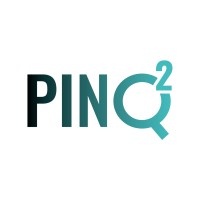
Researchers And FacilitiesExpert AdviceOpen
Digital and Quantum Innovation Platform — PINQ²
Plateforme d'Innovation Numérique et QuantiqueGet expert advice and the use of a high-tech environment
Sign up to our platform to access the EcoAction — Stream 1 information sheet for free
Get access to 4,000+ programs, practical guides, personalized alerts, and an AI assistant to support your grant applications.